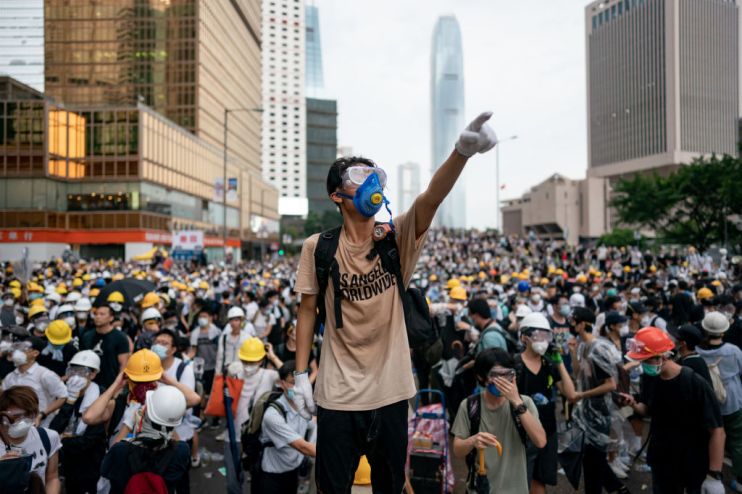With China’s mask off, the last days of Hong Kong are upon us

There is something terrifying about watching freedom die.
As a historian, whether contemplating the end of Athens, the last days of the Roman Republic, or the horrors of the French Revolution devouring its children, as a well-wisher to liberty I always feel an ineffable sadness as freedom is snuffed out.
And that is precisely what is happening in Hong Kong.
Sensing a strategic opening — with the US utterly distracted by the aftermath of the pandemic as well as nationwide civil rights protests — China is on the march. From bullying the Indian army along its shared Himalayan border, to picking fights this year in the South China Sea with Malaysia, Indonesia, and Vietnam, Beijing has put Asia on notice that it is the new great power on the block.
And nowhere has this assertiveness been more on display than in settling domestic scores with Hong Kong’s doughty pro-democracy activists.
Since the British handover in 1997, Hong Kong has been governed by the Basic Law, amounting to the city’s constitution. Article 5 guarantees that Hong Kong and China will operate under a model of “One country, Two systems”, until 2047. That is, British law will remain paramount in the city, even as Beijing controls its foreign and defence policy.
But in power terms, that was then, this is now. The deal was signed when China was far from the superpower it is today, and Beijing’s patience with the accord has run out, whatever the legalisms.
Article 3 of the Basic Law enshrines the rights of freedom of the press and expression, freedom of association, and freedom from arbitrary arrest. During the past year — in response to a controversial proposed new extradition law, which human rights activists feared would allow the Communist Party of China (CCP) to detain at will local opposition figures and dissidents — the pro-democracy movement availed itself of these sacred rights. Activists succeeded in forcing Beijing to shelve the initiative.
But as the protests swelled, they morphed into something larger, seeking to assertively defend Hong Kong’s liberty itself. Seeing this as a direct challenge to their dictatorial rule, Xi Jinping and his CCP cohorts have now moved to settle scores.
At the end of May, the rubber-stamp National People’s Congress (NPC), at the behest of the CCP leadership, overwhelmingly voted to impose a national security law on Hong Kong — even though Article 23 of the Basic Law empowers the Hong Kong government to promulgate its own. Blithely ignoring the law, the new edict sidesteps Hong Kong’s own Legislative Council, with the the city-state’s government merely implementing the diktat from Beijing.
The new law is purposely vague — always the friend of authoritarian regimes everywhere — defining criminal behaviour airily as “any act or activities that seriously endanger national security”. From now on, subversion will be in the eye of the beholder.
In addition, the edict calls for organs of China’s feared state security forces to set up shop in Hong Kong itself for the first time. A garrison will now be in place to enforce China’s power grab.
And so the door closes on freedom in Hong Kong. The city’s deeply unpopular Chief Executive, Carrie Lam, could not have put it more plainly: “Hong Kong cannot bear chaos anymore.”
Let us be clear, this is nothing less than the death of “One country, Two systems”. It is a victory for despotism, and a defeat for adherents of liberty everywhere.
In immediate terms, there is not much the rest of the world can do about China’s brazen power grab. The EU, as per its custom, will wring its hands and do nothing. The UK, slightly more aroused, will take in immigrants from Hong Kong and hopefully delink its 5G network from Huawei’s nefarious grasp.
The US will conclude, as secretary of state Mike Pompeo indicated on 27 May, that the US will over time no longer consider Hong Kong as a separate autonomous region, eroding the city’s special trading status with America and dooming it to a far less prosperous future.
But the icy grip of despotism will not be loosened.
Here is what must happen in policy terms. Given that China has made the expansion of its despotic intentions more than clear with its rise, a global League of Democracies — linking Nato and the Quad-plus in Asia (Australia, the US, Japan, India, Taiwan and others) — must, alerted by the death of Hong Kong, form an alliance dedicated to checking Beijing’s aggression and despotism.
With the last days of Hong Kong upon us, it is time for us to do something.
Main image credit: Getty